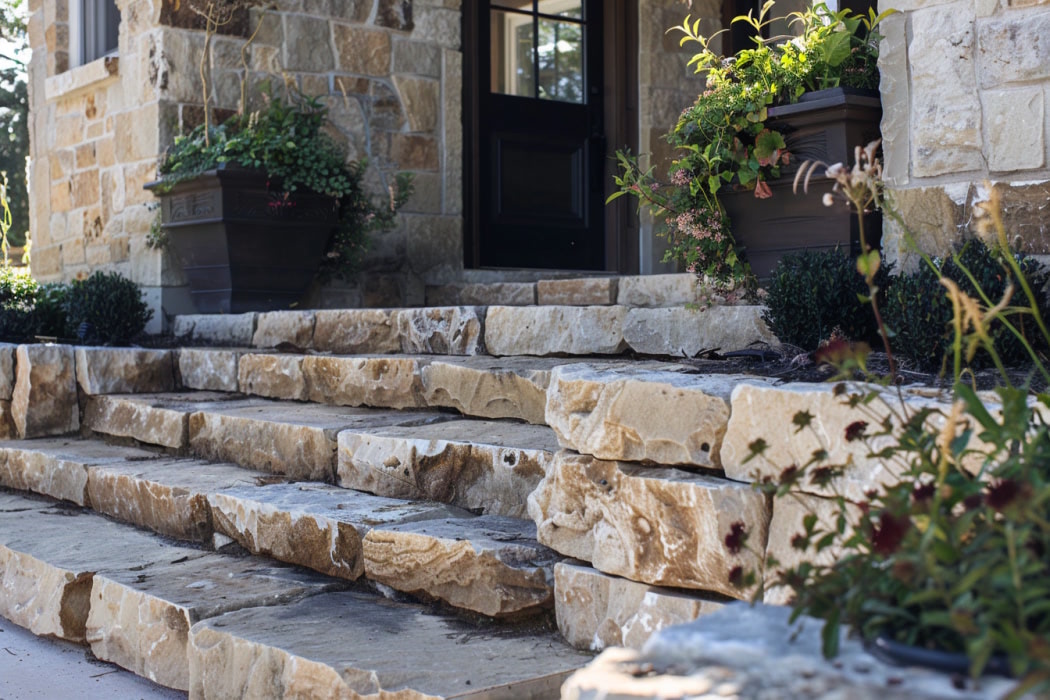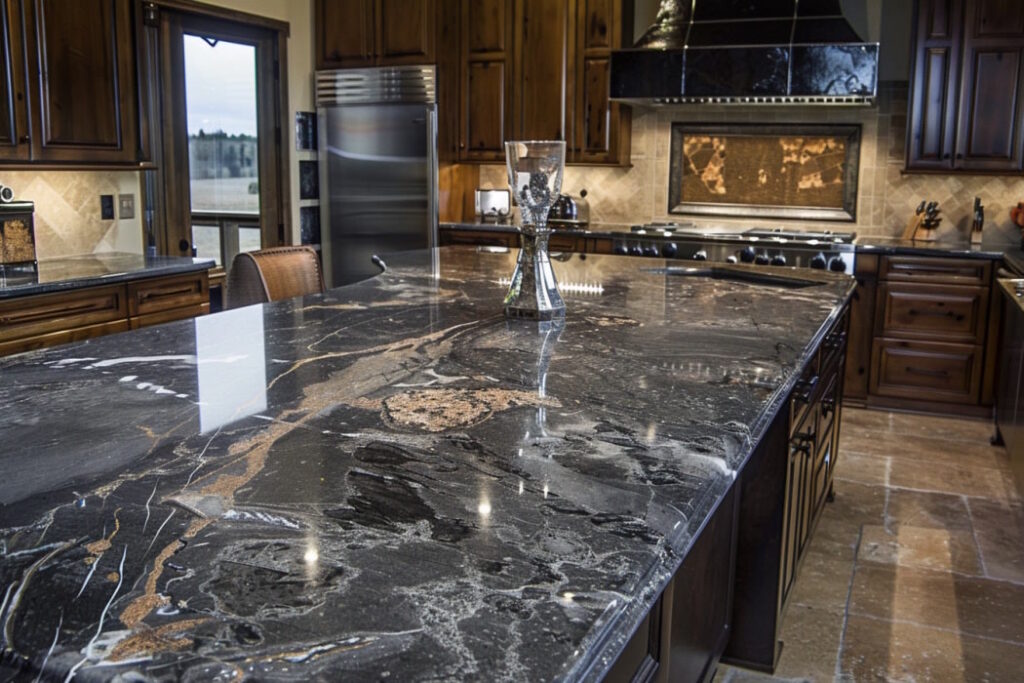Countertops are an essential part of any kitchen or bathroom. They provide a functional workspace and can also enhance the overall aesthetic of the space. When it comes to choosing the right countertop material, there are various options available in the market, each with its own unique characteristics and benefits. However, with so many choices, it can be overwhelming to make a decision. In this article, we will explore different countertop materials, their pros and cons, and help you determine which one is right for you.
Key Takeaways
- Natural stone countertops are durable and come in a variety of types, including granite, marble, and soapstone.
- Other popular countertop materials include quartz, solid surface, laminate, and ceramic tile, each with their own pros and cons.
- When comparing costs, natural stone countertops tend to be more expensive than quartz, solid surface, laminate, and ceramic tile.
- Natural stone countertops require regular maintenance, such as sealing, to maintain their durability and appearance.
- Ultimately, the best countertop material for you will depend on your budget, style preferences, and maintenance needs.
Natural Stone Countertops: Types and Characteristics
Natural stone countertops, such as granite, marble, and soapstone, are some of the most popular choices among homeowners. Granite is known for its durability and heat resistance, making it a great option for busy kitchens. It is also available in a wide range of colors and patterns, allowing you to find the perfect match for your space. However, granite does require regular sealing to prevent stains and maintain its appearance.Marble countertops are often associated with elegance and luxury. They have a timeless beauty that can elevate any kitchen or bathroom design. However, marble is a softer stone compared to granite, making it more prone to scratches and stains. It also requires high maintenance, including regular sealing and careful cleaning to avoid damage.Soapstone countertops are gaining popularity due to their unique characteristics. They are non-porous, which means they are resistant to stains and bacteria growth. Soapstone has a smooth and matte finish that adds a touch of sophistication to any space. However, it is important to note that soapstone is softer than granite and marble, so it may develop scratches over time.
Other Popular Countertop Materials: Pros and Cons
In addition to natural stone countertops, there are other materials that are commonly used in kitchens and bathrooms. Quartz countertops have become increasingly popular due to their low maintenance requirements and wide range of colors and patterns. Quartz is a man-made material that is engineered to be durable and resistant to stains and scratches. It is also non-porous, which means it does not require sealing like natural stone countertops.Solid surface countertops, such as Corian, are another popular choice. They are made from a combination of acrylic and polyester materials, giving them a seamless appearance. Solid surface countertops are non-porous, making them resistant to stains and bacteria growth. They are also easy to clean and maintain, as they can be repaired if scratched or damaged.Laminate countertops are the most affordable option available. They are made from layers of plastic laminate bonded to a particleboard core. Laminate countertops come in a wide range of colors and patterns, allowing you to achieve the look you desire at a fraction of the cost. However, laminate is not as durable as other materials and can be prone to scratches and burns.Ceramic tile countertops are another option that offers durability and heat resistance. They come in various colors and patterns, allowing for endless design possibilities. Ceramic tile is also easy to clean and maintain. However, it is important to note that ceramic tile can be prone to cracks if not properly installed or if heavy objects are dropped on the surface.
Cost Comparison: Natural Stone vs. Quartz Countertops
| Cost Comparison: Natural Stone vs. Quartz Countertops |
|---|
| Material | Natural Stone | Quartz |
| Price per square foot | 50-200 | 50-120 |
| Installation cost per square foot | 25-50 | 20-50 |
| Maintenance cost per year | 200-500 | 0 |
| Durability | High | High |
| Resistance to stains and scratches | Varies by type | High |
| Color and pattern options | Varies by type | Wide range |
When it comes to cost, quartz countertops are generally less expensive than natural stone countertops. This is because quartz is an engineered material, which means it can be produced in large quantities and does not require mining like natural stone. Additionally, quartz does not require sealing or regular maintenance, which can add to the overall cost of natural stone countertops.However, it is important to consider the long-term value when comparing costs. Natural stone countertops, such as granite or marble, can add significant value to your home. They are considered a luxury feature and can attract potential buyers if you decide to sell your home in the future. Quartz countertops, on the other hand, may not have the same level of prestige and may not add as much value to your home.
Cost Comparison: Natural Stone vs. Solid Surface Countertops
Solid surface countertops are generally less expensive than natural stone countertops. This is because solid surface materials are man-made and can be produced in large quantities, reducing the overall cost. Additionally, solid surface countertops do not require sealing or regular maintenance, which can add to the cost of natural stone countertops.However, it is important to consider the durability and long-term value when comparing costs. Natural stone countertops are known for their durability and can last a lifetime with proper care. They are also considered a luxury feature and can add significant value to your home. Solid surface countertops, while more affordable, may not have the same level of durability and may not add as much value to your home.
Cost Comparison: Natural Stone vs. Laminate Countertops

Laminate countertops are the most affordable option available. They are made from inexpensive materials and can be produced in large quantities, reducing the overall cost. Laminate countertops come in a wide range of colors and patterns, allowing you to achieve the look you desire at a fraction of the cost of natural stone.However, it is important to consider the durability when comparing costs. Laminate countertops are not as durable as natural stone countertops and can be prone to scratches, burns, and stains. They may need to be replaced more frequently, which can add to the long-term cost. Natural stone countertops, while more expensive upfront, can last a lifetime with proper care and maintenance.
Cost Comparison: Natural Stone vs. Ceramic Tile Countertops
Ceramic tile countertops are generally less expensive than natural stone countertops. Ceramic tiles are widely available and come in various colors and patterns, allowing for endless design possibilities at an affordable price. However, it is important to consider the durability when comparing costs.Natural stone countertops are known for their durability and can last a lifetime with proper care. They are also considered a luxury feature and can add significant value to your home. Ceramic tile countertops, while more affordable, can be prone to cracks if not properly installed or if heavy objects are dropped on the surface. They may need to be replaced more frequently, which can add to the long-term cost.
Maintenance and Durability of Natural Stone Countertops
Natural stone countertops, such as granite or marble, require regular sealing to prevent stains and maintain their appearance. This is because natural stone is porous and can absorb liquids, leading to stains and bacteria growth. Sealing should be done every 1-2 years, depending on the type of stone and level of use.In terms of durability, natural stone countertops are known for their strength and longevity. With proper care and maintenance, they can last a lifetime. However, it is important to note that natural stone is not indestructible and can be prone to scratches and chips if not handled with care.
Maintenance and Durability of Other Countertop Materials
Quartz countertops require minimal maintenance compared to natural stone countertops. They are non-porous, which means they do not require sealing or regular maintenance. Quartz is also highly durable and resistant to scratches, stains, and heat. It is important to note that while quartz is highly durable, it is not indestructible and can still be prone to damage if not handled with care.Solid surface countertops are also non-porous and easy to clean. They do not require sealing or regular maintenance like natural stone countertops. Solid surface materials are highly durable and resistant to scratches, stains, and heat. However, they can be prone to scratches and burns if not properly cared for.Laminate countertops are easy to clean but can be prone to scratches, burns, and stains. They require minimal maintenance but may need to be replaced more frequently due to wear and tear. Ceramic tile countertops are also easy to clean but can be prone to cracks if not properly installed or if heavy objects are dropped on the surface.
Which Countertop Material is Right for You?
Choosing the right countertop material ultimately depends on your budget, lifestyle, and aesthetic preferences. Natural stone countertops, such as granite or marble, are a great investment and can add significant value to your home. However, they require more maintenance compared to other materials.If you are looking for a low maintenance option, quartz or solid surface countertops may be the right choice for you. They are durable, easy to clean, and come in a wide range of colors and patterns. Laminate countertops are the most affordable option but may not be as durable as other materials.Ceramic tile countertops offer durability and heat resistance but can be prone to cracks. Consider your budget, lifestyle, and aesthetic preferences when making a decision. It is also helpful to consult with a professional to determine which countertop material is best suited for your needs.If you’re interested in learning more about the benefits of working with a local countertop company, check out this informative article from Edstone Inc:
The Benefits of Working with a Local Countertop Company. It explores the advantages of choosing a local supplier for your countertop needs, including personalized service, faster turnaround times, and supporting the local economy. Whether you’re looking for granite, quartz, or other countertop materials, this article will help you make an informed decision.
FAQs
What are the different types of natural stone used for countertops?
Some of the most popular natural stones used for countertops include granite, marble, soapstone, and quartzite.
What are some other materials used for countertops?
Other materials used for countertops include laminate, solid surface, ceramic tile, concrete, and stainless steel.
What is the cost difference between natural stone and other countertop materials?
Natural stone countertops tend to be more expensive than other materials, such as laminate and ceramic tile. However, they can be comparable in price to solid surface and concrete countertops.
What factors affect the cost of natural stone countertops?
The cost of natural stone countertops can vary depending on factors such as the type of stone, the thickness of the slab, the complexity of the installation, and the location of the supplier.
What are the benefits of natural stone countertops?
Natural stone countertops are durable, heat-resistant, and can add value to a home. They also come in a variety of colors and patterns, making them a versatile choice for any kitchen or bathroom.
What are the drawbacks of natural stone countertops?
Natural stone countertops can be expensive and require regular maintenance, such as sealing and polishing. They can also be prone to chipping and cracking if not properly cared for.
What are the benefits of other countertop materials?
Other countertop materials, such as laminate and solid surface, are typically less expensive than natural stone and require less maintenance. They also come in a variety of colors and patterns.
What are the drawbacks of other countertop materials?
Other countertop materials may not be as durable or heat-resistant as natural stone. They may also be more prone to scratches and stains.
 Laminate countertops are the most affordable option available. They are made from inexpensive materials and can be produced in large quantities, reducing the overall cost. Laminate countertops come in a wide range of colors and patterns, allowing you to achieve the look you desire at a fraction of the cost of natural stone.However, it is important to consider the durability when comparing costs. Laminate countertops are not as durable as natural stone countertops and can be prone to scratches, burns, and stains. They may need to be replaced more frequently, which can add to the long-term cost. Natural stone countertops, while more expensive upfront, can last a lifetime with proper care and maintenance.
Laminate countertops are the most affordable option available. They are made from inexpensive materials and can be produced in large quantities, reducing the overall cost. Laminate countertops come in a wide range of colors and patterns, allowing you to achieve the look you desire at a fraction of the cost of natural stone.However, it is important to consider the durability when comparing costs. Laminate countertops are not as durable as natural stone countertops and can be prone to scratches, burns, and stains. They may need to be replaced more frequently, which can add to the long-term cost. Natural stone countertops, while more expensive upfront, can last a lifetime with proper care and maintenance. Laminate countertops are the most affordable option available. They are made from inexpensive materials and can be produced in large quantities, reducing the overall cost. Laminate countertops come in a wide range of colors and patterns, allowing you to achieve the look you desire at a fraction of the cost of natural stone.However, it is important to consider the durability when comparing costs. Laminate countertops are not as durable as natural stone countertops and can be prone to scratches, burns, and stains. They may need to be replaced more frequently, which can add to the long-term cost. Natural stone countertops, while more expensive upfront, can last a lifetime with proper care and maintenance.
Laminate countertops are the most affordable option available. They are made from inexpensive materials and can be produced in large quantities, reducing the overall cost. Laminate countertops come in a wide range of colors and patterns, allowing you to achieve the look you desire at a fraction of the cost of natural stone.However, it is important to consider the durability when comparing costs. Laminate countertops are not as durable as natural stone countertops and can be prone to scratches, burns, and stains. They may need to be replaced more frequently, which can add to the long-term cost. Natural stone countertops, while more expensive upfront, can last a lifetime with proper care and maintenance.




